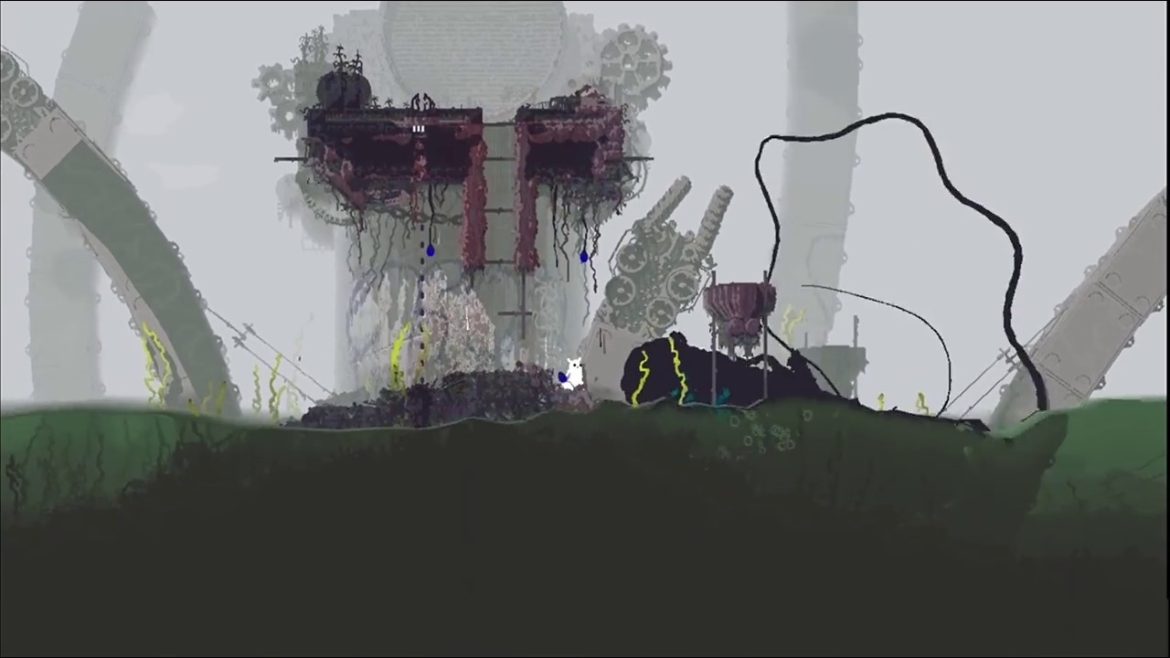Welcome back readers.
We’ve got some good stuff earmarked for you this week, with writing spanning time periods, game genres, and industry trends. Let’s dive right in.
This Week in Videogame Blogging is a roundup highlighting the most important critical writing on games from the past seven days.
Public/Private
This week we open with a hybrid section bringing together concerns of industry and community across different topics.
- Crowbcat, The Kuleshov Effect, and Insincere Games Criticism
The Tax Collector Man deciphers a rhetorical playbook for outrage farming. - Games and Online Harassment Hotline, Take This Heads Explain Why the Industry Needs Another ‘Culture Shift’ | IGN
Rebekah Valentine chats with Anita Sarkeesian and Eve Crevoshay about how the industry has changed in the last ten years–and how it still needs to change. - Years ago, the NSA spied on World of Warcraft — how have things changed since? | Polygon
Kaile Hultner investigates the state of state surveillance in online games past and present.
“While many see MMOs as sites separate from their daily lives, where they play and fight and occasionally get rewarded for their efforts with treasure, the intelligence community saw (and potentially still sees) MMOs themselves as the treasure, to be continuously plundered for fresh data on potential targets. The IC doesn’t see the “magic circle” of Azeroth or Eorzea or Linden World as a barrier, but rather, as a veil from the public’s critical gaze.”
Revival Horror
Our next pairing focuses squarely on Ashley Graham from Resident Evil 4, past and present.
- The Resident Evil 4 Remake Totally Failed Ashley Graham | Kotaku
Ashley Bardhan finds Resident Evil 4‘s deuteragonist to be a character in want of, well, character. - And Then There Are Things We Don’t Remake | Bullet Points Monthly
Ed Smith sees mass-market appeal as the common thread between the more conservative representational politics of games twenty years ago and the more amorphous, noncommittal incarnations we get today.
“If you’re a feminist, Ashley talks more, does more, is kind of semi appreciably less sexualised than before. It won’t work on everyone, but enough people will be impressed by this ostensible progress as compared to 2005 that Resident Evil 4 Remake more or less passes the look test. If you like things how they were, and you’re worried about how videogames increasingly seem politicised or driven by a liberal agenda, Ashley still doesn’t do that much, and you still get to order her around, and there’s a few decent close-ups of her and Ada.”
Start Your Engines
Next up, two careful development histories of two very different games.
- Mario Is Missing, The Legendary Plumber’s Oddest Adventure | Time Extension
Damien McFerran excavates the peculiar genesis of Luigi’s first starring role. - The Next Generation in Graphics, Part 1: Three Dimensions in Software (or, Quake and Its Discontents) | The Digital Antiquarian
Jimmy Maher chronicles the tummultous industry shift from two-and-a-half D’s to a full three.
“it’s difficult to fully convey today just how revolutionary the granular details of Quake seemed in 1996: the way you could look up and down and all around you with complete freedom; the way its physics engine made guns kick so that you could almost feel it in your mouse hand; the way you could dive into water and experience the visceral sensation of actually swimming; the way the wood paneling of its walls glinted realistically under the overhead lighting.”
Stories and Symbolism
Our next three featured authors dig into the narrative nuts and bolts of, again, some very different games.
- ‘Misericorde’ Is the Best-Written Game of 2023 | Inverse
Willa Rowe finds a lot to like in a smartly-written story making its Steam debut. - Genesis Noir: On Polyphonic Space | Death is a Whale
James Tregonning observes a tension in games between metaphorical and concrete visual representation, finding a refreshing commitment to the former in Genesis Noir. - Soul Edge: The stage of history… | Kimimi The Game-Eating She-Monster
Kimimi digs into Soul Edge‘s whole-ham commitment to the telling of its story of souls and swords, eternally retold.
“I’m the kind of person who mostly sticks with fighting games because I’m interested in their story. And no plot-via-punching shines quite as brightly as the experience found in Soul Edge.”
Climbing and Cataloguing
Here’s a pair of thoughtful meditations on new-and-recent games
- The Librarian in Strange Horticulture | Play the Past
Alvina Lai examines how Strange Horticulture represents the librarian profession, as well as its associated stereotypes and structural challenges. - Three Reviews of Rain World
vehemently offers plural, contradictory perspectives on a plural, contradictory game.
“I am not, nor have I ever been, a spiritual person. I don’t think I ever will be. But Rain World helps me understand why people become Buddhists. This game was a spiritual experience for me. I mean that. I hate it, I love it, I am endlessly fascinated by it. It is an utterly singular game. I don’t think there has ever been or ever will be another game quite like Rain World.”
Critical Chaser
I’m glad we’ve begun to move past that ten-year-old 420 article on IGN.
- The Cringiest Weed References In Video Games | Kotaku
Juno Stump gathers some of the more inglorious historical footnotes of gaming’s relationship to cannabis.
“These cringy weed moments in games and gaming history are a reminder that, despite their connections, video games and weed are still figuring each other out.”
Subscribe
Critical Distance is community-supported. Our readers support us from as little as one dollar a month. Would you consider joining them?
Contribute
Have you read, seen, heard or otherwise experienced something new that made you think about games differently? Send it in!


